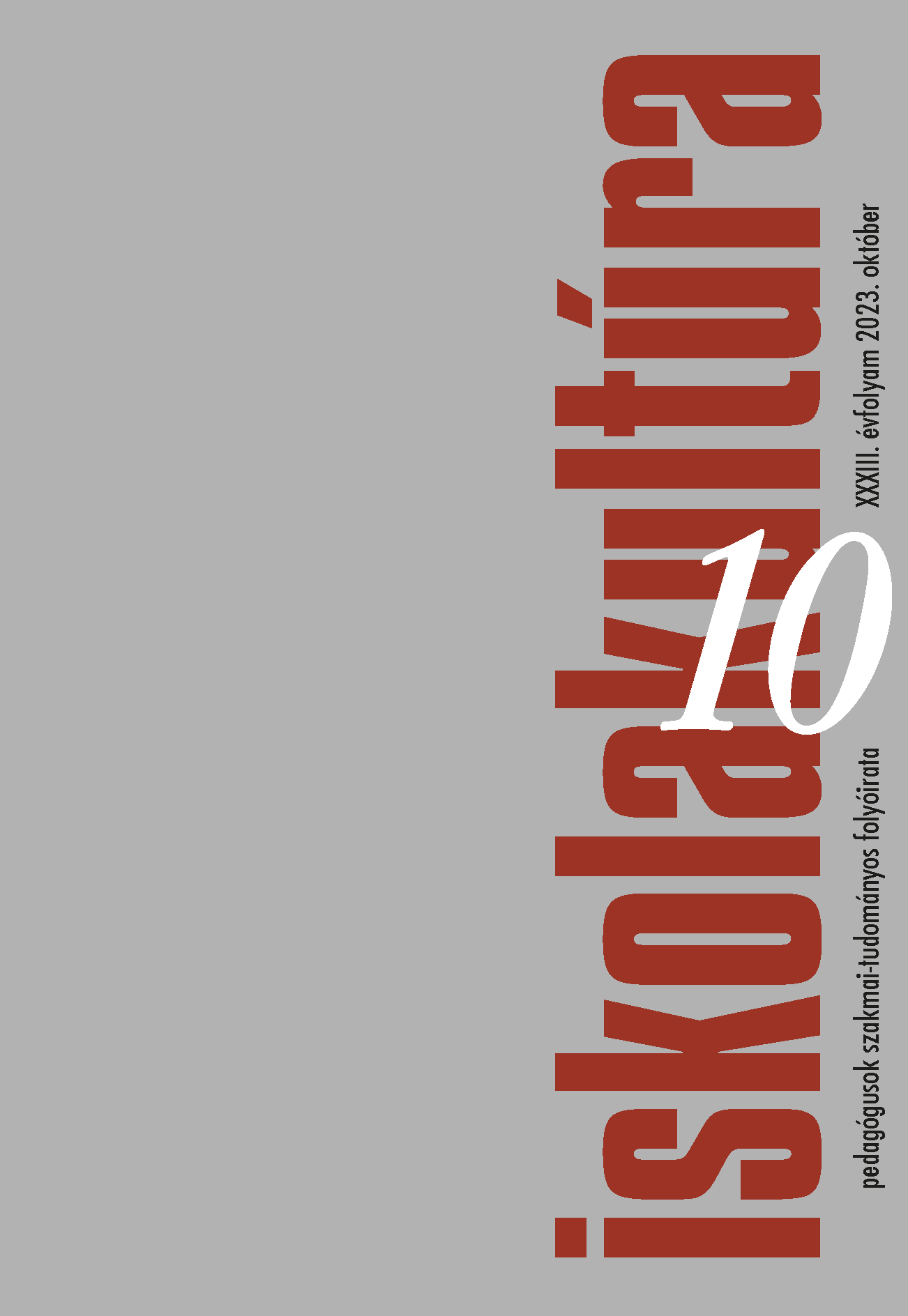Resilience in the Hungarian educational science discourse Research history in a statistical approach
Main Article Content
Abstract
Resilience in educational science is a relatively new topic on the international level. Research in Hungary has an even shorter history. The first publication goes back to 2012, and the first and so far only research review was written in 2016. The aim of our recent statistical analysis is to collect all records published in education sciences between 2012 and 2022 from publicly available Hungarian databases and library catalogues. And furthermore, to create an overall picture of the main trends – by whom, when, in what form they were written, where they were published, with what method and who they examined. We managed to identify a total of 109 relevant publications in Hungarian. We focused on formal and some basic content features by examining the keywords of the titles and the abstracts. A more detailed content analysis is planned in the near future. Based on our results, a typical Hungarian publication dealing with resilience was most likely published in the second half of the last decade, written by a novice researcher, rather shorth (article or book chapter), and concentrated on the higher education sector, primarily on disadvantaged university students. We recommend our study to those who are also interested in further statistical details concerning the formal characteristics. Based on the content analysis, further empirical studies would be particularly useful among teachers, elementary school students and school organizations in the context of resilience.
Downloads
Article Details
References
Bass, L. & Darvas, Á. (2008). Gyerek jól-lét – szociálpolitika – gyerekintézmények. MTA Közgazdaságtudományi Intézet.
Békés, V. (2002). A reziliencia-jelenség, avagy az ökologizálódó tudományok tanulságai egy ökologizált episztemológia számára. In Forrai, G. & Margitay, T. (szerk.), Tudomány és történet: Tanulmánykötet Fehér Márta tiszteletére (215-228). Typotex.
Berbés-Blázquez, M. & Scott, D. (2017). The development of resilience thinking. Tourism and Resilience, 9–22. CABI. DOI: 10.1079/9781780648330.0009
Borazon, E. Q. & Chuang, H-H. (2023). Resilience in educational system: A systematic review and directions for future research. International Journal of Educational Development, 99. 102761. DOI: 10.1016/j.ijedudev.2023.102761
Bourbeau, P. (2018). A genealogy of resilience. International Political Sociology,12(1), 19–35. DOI: 10.1093/ips/olx026
Ceglédi, T. (2012). Reziliens életutak, avagy A hátrányok ellenére sikeresen kibontakozó iskolai karrier. Szociológiai Szemle,22(2), 85–110.
Ceglédi, T. (2018). Ugródeszkán: reziliencia és társadalmi egyenlőtlenségek a felsőoktatásban. CHERD-Hungary.
Erdei, R. (2015). Reziliencia a pedagógiában – a kockázat ellensúlyozása pedagógiai eszközökkel. Pedagógusképzés, 27–43. DOI: 10.37205/tel-hun.2014-2015.02
Fehérvári, A. (2019). Eredményesség- és méltányosságkutatások a magyar közoktatásban. Szisztematikus irodalomáttekintés 1990–2019. Iskolakultúra,31(4), 90–108.
Homoki, A. (2016). A reziliencia recepciója a hazai neveléstudományi kutatásokban. In Pusztai, G., Bocsi, V. & Ceglédi, T. (szerk.), A felsőoktatás (hozzáadott) értéke: Közelítések az intézményi hozzájárulás empirikus megragadásához. Partium Kiadó – Új Mandátum Könyvkiadó. 78–90.
Homoki, A. (2020). A reziliencia egyéni nézőpontú megközelítései a humán segítés nemzetközi és hazai gyakorlatában. Szociálpedagógia, 15, 52–68.
Kozma, T. (2013). Pedagógiából neveléstudomány. Neveléstudomány, 1(1), 91–105.
Rayman, J. & Varga, A. (2015). Reziliencia és inklúzió. Romológia, 3(10), 9–28.
Szokolszky, Á., Palatinus, K. & Palatinus, Zs. (2015). A reziliencia mint a komplex dinamikus fejlődési rendszerek sajátossága. Alkalmazott Pszichológia,15(1), 43–60.
United Nations Educational Scientific Cultural Organization (2021). Building back resilient: how can education systems prevent, prepare for and respond to health emergencies and pandemics? https://unesdoc.unesco.org/ark:/48223/pf0000375278.
Van Breda, A. D. (2018). A critical review of resilience theory and its relevance for social work. Social Work/Maatskaplike Werk, 54(1), 1–18. DOI: 10.15270/54-1-611
Varga, A. (2017). Inkluzivitás napjainkban: hátrányos helyzetű, roma/cigány fiatalok életútja. Educatio,26(3), 418–430. DOI: 10.1556/2063.26.2017.3.8

